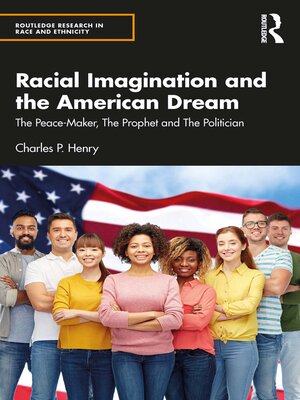Racial Imagination and the American Dream
ebook ∣ The Peace-Maker, The Prophet and The Politician · Routledge Research in Race and Ethnicity
By Charles P. Henry

Sign up to save your library
With an OverDrive account, you can save your favorite libraries for at-a-glance information about availability. Find out more about OverDrive accounts.
Find this title in Libby, the library reading app by OverDrive.



Search for a digital library with this title
Title found at these libraries:
| Library Name | Distance |
|---|---|
| Loading... |
Although the phrase "the American Dream" dates from the 1930s, the concept or idea of the American Dream is as old as the country. The values proclaimed in the Declaration of Independence and reaffirmed (and extended) in the Gettysburg Address have been continuously promoted by every American president. Moreover, they form the basis of our national collective narrative as expressed through both elite and popular culture. The American Dream is intrinsically tied to the American Creed and American Exceptionalism. It is the foundation of our national identity, the glue that holds together our individual aspirations. Yet until the mid-twentieth century, the American Dream excluded African Americans. We as a nation—as an imagined community—could not imagine an integrated, multiracial society with Blacks and Whites living together as equals.
By examining the lives of the only three African American Nobel Peace Prize winners, we can see how their lives were shaped by the American Dream, and how their success was used to deny the structural racism that prevented others from achieving the American Dream. Ralph Bunche as a role model of academic and technical expertise, Martin Luther King, Jr., as a model race leader, and Barack Obama as a political leader provide a window on the changing meaning of the American Dream.
In conclusion, Haiti is presented as a failed example of an attempt to export the American Dream in the form of American Exceptionalism, and racial reparations are reimagined as a radical democratic project aimed at true global integration and justice.







